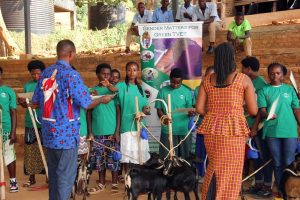Rwanda: TVET curriculum revised to meet job market demand
Rwanda TVET Board (RTB) has revised the academic programmes for Technical and Vocational Education Training (TVET) in the country, to make them up to date with dictates of the job market.
The new programme will be rolled out with the new academic year that begins late September and currently, officials at the board are on a countrywide tour popularising the new curriculum to different stakeholders..
According to Paul Mukunzi, the Director General at RTB, told The New Times that some of the programmes that have been affected by the changes include construction and building services, ICT and multimedia, arts and crafts.
He said that these have been streamlined in line with market demand, and with view to inspire growth-oriented and technology led work.
Artificial intelligence encouraged
Addressing students in Rubavu District on Wednesday, Mukunzi urged young people to embrace TVET education so that the county can in a short time get competitive citizens with technological expertise needed to achieve the country’s development ambitions.
“We need Rwandans who will compete with Chinese in road construction, Brazilians in building bridges for us to have highly developed infrastructure,” he said, adding that to get there faster, they will need to use artificial intelligence both during learning and when they start work.
He said that there was urgent need to shun the traditional way of doing things to modern ways, that are majorly technology-backed.
Viviane Irakoze, 18, dreams of enrolling in TVET.
She says she likes music a lot more than any other subject and intends to pursue this, her dream is to have more Rwandans excelling in engineering.
“It’s time to stop that and get our own local engineers so that the country no longer spends a lot of money on expatriate engineers,” she said.
There are presently 491 TVET schools which the government is set to increase from 31.9%, present rate, to 60 % by 2024.
It was previously announced that at least 114 schools would be built by the end of the 2022-2023 fiscal year to ensure at least every sector to get at least one school. Rwanda has 416 sectors.
SOURCE: THE NEW TIMES




